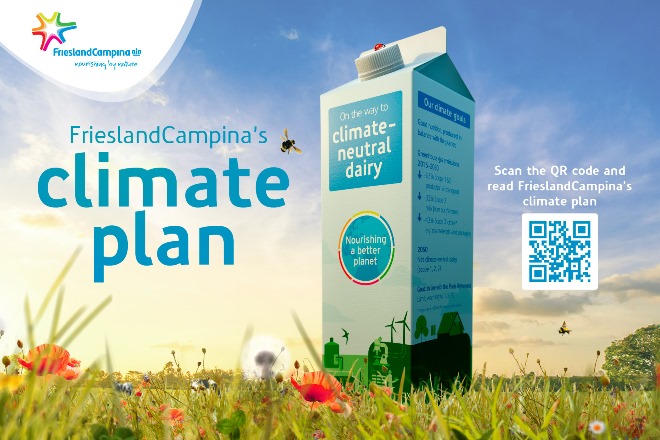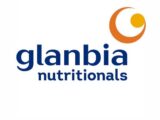FrieslandCampina has today published its climate plan ‘On the way to climate-neutral dairy’ as part of its integrated nourishing a better planet sustainability programme. The company is aiming to produce net climate-neutral dairy by no later than 2050. The climate plan contains clear targets and concrete actions, with a checkpoint being a significant reduction in greenhouse gas emissions by 2030.
Said Hein Schumacher, CEO Royal FrieslandCampina N.V.: “FrieslandCampina is keen to give people throughout the world daily access to good and affordable food, produced in balance with the planet. Unsurprisingly, then, reducing our greenhouse gas emissions is one of the priorities enshrined in our Nourishing a better planet sustainability programme. The Paris Agreement encompasses agreements on measures throughout the world to help keep global warming well below 2 degrees Celsius and preferably to 1.5 degrees Celsius. Our detailed climate plan demonstrates that we are keen to do our bit. Our targets and concrete actions provide a clear road map towards a significant reduction in greenhouse gas emissions by 2030, putting us on course to achieve net climate-neutral dairy by 2050. In line with FrieslandCampina’s cooperative nature, we are working closely together with member dairy farmers, customers, suppliers, scientists, NGOs and government on meeting the climate targets.”
For the production of milk at the member dairy farms, the target is a 33 percent reduction in greenhouse gas emissions compared to 2015. The reduction in greenhouse gas emissions on the farm will be achieved by means of a package of options that match with the diversity within the cooperative and the professionalism and entrepreneurship of the member dairy farmers. Consider in this regard further optimising of agricultural practices, feed (e.g., by using guaranteed deforestation-free soy in cattle feed), use of feed additives that reduce methane emissions from cows, green solar and wind energy from the farmyard and cowshed measures (e.g., through innovative technology, such as mono-manure fermenters and low-emission cowshed floors).
The target in the raw materials supply chain and in the supply of products, such as packaging, procurement of basic dairy and sugar, is a 43 percent reduction in greenhouse gas emissions by 2030 compared to 2015. To achieve this target, FrieslandCampina is working closely with its suppliers.
The company’s climate targets are currently being validated by leading international institute Science Based Targets initiative (SBTi). For more visit frieslandcampina.com



